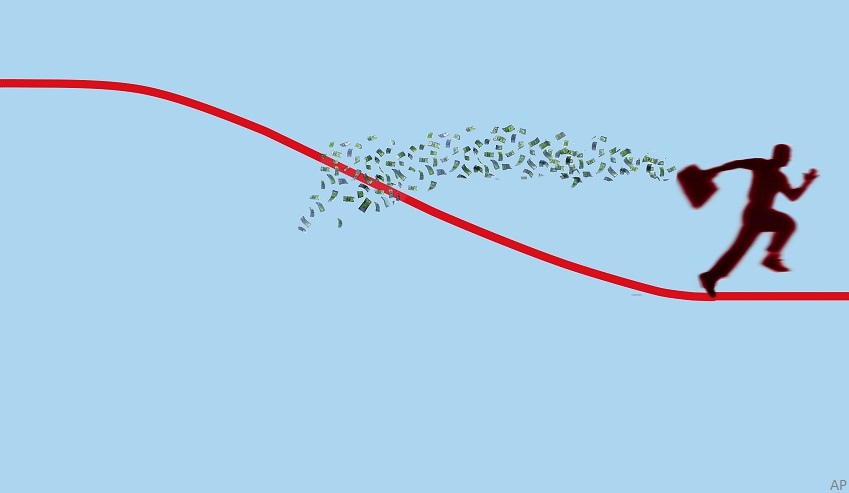Susan Dziubinski: Hi, I'm Susan Dziubinski for Morningstar. Investors often struggle with rightsizing their cash positions. Figuring out how much cash you should keep on hand and where you should hold it is the subject of Christine Benz's financial to-do list for May. She is here today to discuss the topic. Nice to see you, Christine.
Christine Benz: Hi, Susan. Good to see you.
Dziubinski: We've been experiencing a somewhat volatile market this year. So, some investors might take some comfort in having a little bit of extra cash on hand. What do you think of that idea?
Benz: I can certainly empathize with investors' desire to gravitate to cash, especially because we've seen bonds get jostled around a little bit this year. And I do think that perhaps there is a case for investors who are active in their portfolios who want to take advantage of bargain-hunting to potentially hold a little bit extra in liquid reserves. But there is a fine line between this and market-timing, I think. And the risk of having too much in cash is that if the market recovers--and we have had some pretty decent-sized losses in stocks so far this year--if the market recovers, it often does so very, very quickly, and so there is a risk that you could be left with too much of your portfolio on the sidelines. And then, another risk that I think should be front and center for investors today is the fact that inflation is flaring up. So, if you have cash, yes, you have some protection against principal losses, but you're not protecting against the erosion in your purchasing power that you see when inflation goes up. So, those are two big risks, I think, of having too much in cash today.
Dziubinski: I'm assuming this also depends a bit on an individual's situation. How could an investor suss out "How am I looking on the cash front? Should I perhaps have a little bit more on hand than I do?" What would that look like?
Benz: I do think it's very individual specific. But it starts with thinking about emergency funding, emergency reserves. That's kind of financial planning 101. And when you think about working people who are earning an income, three to six months is often set out as kind of the baseline of amount that you'd want to have on hand to cover three to six months' worth of living expenses. But if you are the sole earner in your family, or you're a higher-income worker, or if you're an older worker and oftentimes higher-income workers are older workers, I think you'd want to set aside a little bit more, a little closer to like one year's worth of emergency reserves, one year's worth of spending money. And the idea is that you're buying yourself some protection if you lose your job and it takes you a while to replace it, you'll have that buffer in place. And it's also there to meet unanticipated expenses.
Dziubinski: Where's the best place to sort of keep an emergency fund? What do you suggest?
Benz: Well, the idea is that your money is really liquid, so you're not really taking a lot of risk or any risk with this portion of your portfolio. You want to think about bank savings accounts. Money market mutual funds could work in this context. Assets that might earn a little bit of yield and will not budge in terms of your principal value. In terms of where to hold those funds, you typically would want to keep them out of your retirement accounts because you don't want to have to face any taxes or penalties if you need to tap into the money. One exception, Susan, would be a Roth IRA. I often hold this out as a good multitasking vehicle, especially for younger people who are just kind of getting their financial plans off the ground. And the virtue of housing an emergency fund inside of a Roth IRA is that you can withdraw your contributions at any time without any penalties or taxes. Your contributions only, not the investment earnings piece. But it can be a nice option for, kind of, multitasking. So, you might have a hope of getting that money invested for long-term eventually, but in the meantime, while you're trying to amass that liquid reserve fund, you can use it as your emergency fund as well.
Dziubinski: A lot of people, as you alluded to, think of emergency funds as income replacement if in fact I lose my job. Is there a role for emergency funds for retirees who don't have that same sort of job to worry about or be concerned about?
Benz: I think there is, Susan. And as I mentioned, you want to think of it as protecting you against income shocks like job loss, but you also want to think about holding emergency reserves to protect yourself against unanticipated expenses to ensure that you don't have to raid your long-term investments to fund new roofs, or if something happens to your car or you have a big vet bill or a big medical expense. All of those things are expense shocks for many households. So, the idea of holding that emergency fund will give you liquid assets that you could tap in a pinch under those circumstances.
Dziubinski: Aside from emergency funds, you often talk about, specifically for retirees, this bucket strategy and keeping a year's worth of expenses in that cash bucket in retirement. Why is that? Talk us through that.
Benz: I'd like the idea of kind of using your time horizon, your anticipated spending horizon to inform how you structure your portfolio. So, I typically talk about holding one to two years' worth of portfolio withdrawals in cash investments and then stepping out on the risk spectrum from there. So, you might hold another five to eight years or so in high-quality, short- and intermediate-term bonds, and then the remainder of the portfolio can go into higher-returning long-term assets. But the virtue of having that cash buffer in place is that the longer-term portion of your portfolio can get jostled around, and it probably will over the years. And the idea is that if you do have one to two years' worth of liquid reserves set aside in true cash investments, that's not going to bother you. It's not going to disrupt your spending plan. That's one of the reasons why I'm such a believer in this bucket strategy because I think it really works from a behavioral standpoint. It helps give retirees peace of mind to make peace with the long-term volatility in their long-term assets.
Dziubinski: And lastly, Christine, given the volatility we've seen and the losses in the bond market so far this year, there might be some retirees who were thinking, "Maybe I should be having some cash on hand rather than bonds." What should they be thinking about there?
Benz: There's not a lot of love for bonds today. The Bloomberg Barclays Aggregate Index has incurred pretty big losses, like 8% losses here through late April. So, it's hard to get retirees excited about holding bonds in their portfolio. They may want to just gravitate to cash. The risk of holding too much in cash though, something I mentioned before, is inflation, that your cash investments are dead money, and they tend to be a little less effective as ballast for equity exposure, especially in a recessionary environment. So, I think it's a mistake to completely avoid bonds in favor of cash simply because the opportunity cost is greater than it was a couple of years ago.
Dziubinski: Well, Christine, thank you for your time today and for walking us through some of these cash strategies we should be thinking about in this volatile market. We appreciate it.
Benz: Thank you so much, Susan.
Dziubinski: I'm Susan Dziubinski with Morningstar. Thanks for tuning in.





















